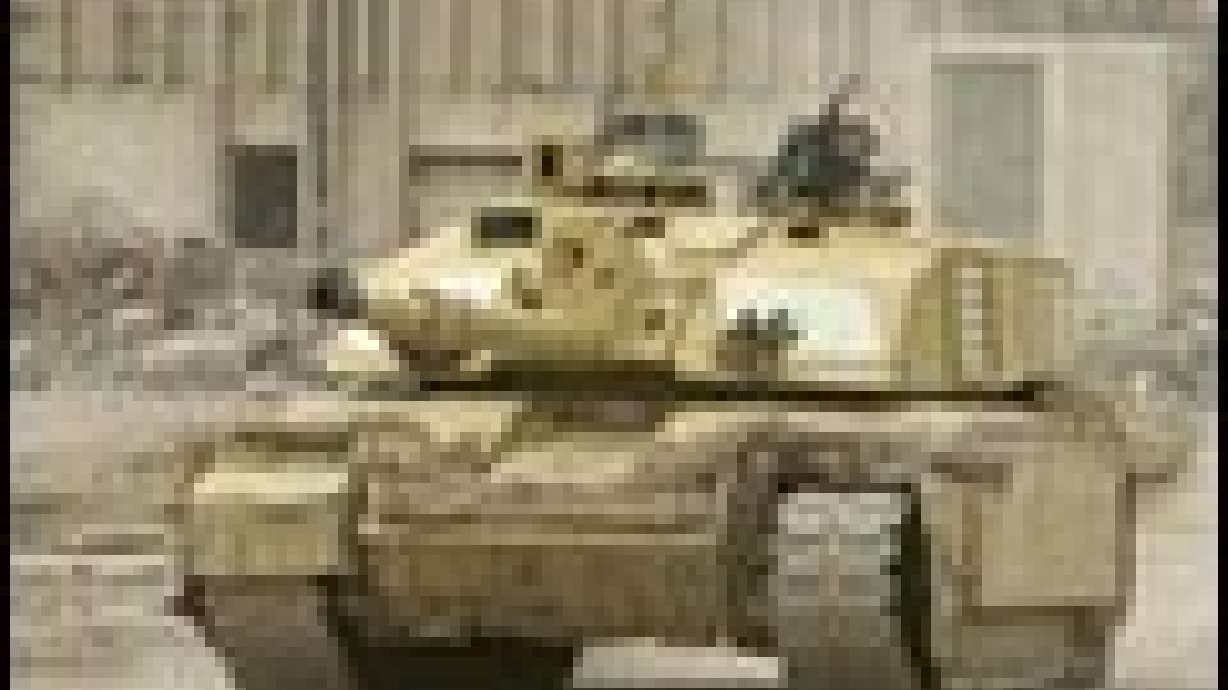Estimated read time: 3-4 minutes
This archived news story is available only for your personal, non-commercial use. Information in the story may be outdated or superseded by additional information. Reading or replaying the story in its archived form does not constitute a republication of the story.
NEAR BASRA, Iraq (AP) -- British troops staged their largest military incursion into the southern city of Basra, rumbling into Iraq's second-largest city with a column of 40 armored personnel carriers Sunday.
Later in the day, Royal Marines were reported engaged in a separate battle on the southwestern outskirts of Basra.
British forces had remained on the city's outskirts for nearly two weeks, staging raids and patrols through the city and skirmishing with Iraqi paramilitaries but not establishing any firm presence.
Group Capt. Al Lockwood, spokesman for British forces in the Persian Gulf, said that for the first time British soldiers had set up checkpoints inside Basra and continued to look for battered Iraqi forces holed up in the city.
The incursion force from the 7th Armored Brigade, known as the "Desert Rats," met only patchy resistance while pushing into Basra on Sunday, according to pool reports from British journalists.
"We are aggressively patrolling; we're moving into the city now," Lockwood said.
According to British pool reports, Royal Marine commandos fought with Iraqi troops on the southwestern edge of Basra later Sunday. The fighting began with heavy British artillery shelling as the marines moved toward the city, early reports said.
The push into Basra came a day after coalition aircraft bombed a compound in Basra belonging to one of Iraqi President Saddam Hussein's most notorious associates -- Gen. Ali Hassan al-Majid, known as "Chemical Ali" for ordering a poison gas attack that killed thousands of Kurds in 1988.
Two coalition aircraft used laser-guided munitions on Saturday to attack al-Majid's villa. Officials have said the general, who is Saddam's cousin, may have been at home at the time of the attack.
Lockwood said British troops would investigate the compound to determine whether the general himself was killed. His bodyguard died in the attack.
In Baghdad, responding to questions about whether al-Majid might have been killed, Information Minister Mohammed Saeed al-Sahhaf said: "Let them (live) in their illusions."
Lockwood, speaking at U.S. Central Command in Doha, Qatar, said the British incursion Sunday also was designed to "reassure the people of Basra that we're there and we're coming to liberate the city."
"We feel that the tactical situation is such that we can move further into the city," he said. He said troops weren't at the city center, but "further into the city than we were before."
Al-Jazeera television, which has a correspondent in the city, reported that British troops "have entered deep inside Basra."
The commander of Britain's forces in the gulf, Air Marshal Brian Burridge, said British troops had taken their time before entering Basra in order to "shape the battlespace" in the coalition's favor and ensure minimum civilian casualties.
He said it was necessary to attack "without risking inordinately the lives of the population -- knowing where the irregulars are, knowing where the militia are and being in a position to deal with them with as much precision as possible," he told British Broadcasting Corp. radio.
Lockwood said it appeared the Baath Party leadership in Basra had either been eliminated or fled.
The decision to move into Basra was based partly on reports in the Arab press that the leaders left in Basra wanted to surrender the city, but that they wanted Baghdad to give up first, he said.
"We stressed to them that maybe they should take the initiative and surrender. I don't know how that progressed," Lockwood said.
Reports of looting in the city -- a sign of weakening Baath Party control -- also prompted the British to act.
"The indicators were there that probably the time was right to move into Basra and we have done," Lockwood said.
Lockwood said the initial intention had been to establish checkpoints in the suburbs, but that it was decided to press on deeper into the city after Iraqi forces put up minimal resistance.
He said the resistance was mostly in isolated pockets but that it was "generally disorganized, no real command and control."
(Copyright 2003 by The Associated Press. All Rights Reserved.)









